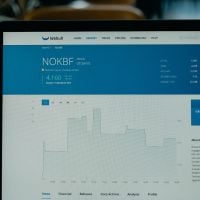Deadline: 12-Jun-23
The U.S. Department of Justice (DOJ), Office of Justice Programs (OJP), Office for Victims of Crime (OVC) seeks applications for funding to support an entity that will:
- competitively select and fund subawards to recruit, train, and deploy paid peer recovery coaches who will assist a family member or caregiver’s recovery from substance misuse in order to support the well-being of youth who have experienced victimization as a result of the drug use;
- provide technical assistance to the selected subawardees; and
- assist in the development of a peer recovery coach paraprofessional program.
Goals, Objectives, and Deliverables
- Goals
- The goal of this initiative is to support children, youth, and families who have suffered victimizations as a result of a family member’s or caregiver’s substance use disorder by recruiting, training, and certifying peer recovery coaches who have lived experience. The program will result in a peer recovery coach paraprofessional program.
- Objectives
- Develop a peer recovery coach-oriented workforce/paraprofessional program that successfully integrates recovery support services and supports individuals’ efforts to initiate and sustain their recovery.
- Ensure culturally responsive service provision, equity, and justice. Specific efforts should be made to reach out to and serve marginalized and historically underserved populations.
- Enhance knowledge and build the capacity of peer recovery coaches to serve this population more effectively.
- Build collaborative arrangements with other organizations or partners to guarantee program success.
- Provide services in non-treatment settings where appropriate.
- Deliverables
- Create and disseminate a national request for applications, in coordination with OVC, to competitively select service providers for subawards. Subawardees will be selected based on their expertise in providing peer recovery support services for individuals experiencing substance use disorders and their capacity to provide quality supervision to peer recovery coaches.
- Execute, manage, and monitor subawards.
- Identify options for a robust training and certification curriculum for individuals with lived experience to become peer recovery coaches in a paraprofessional workforce. Training may include evidence-based frameworks or tools to support individuals in their recovery journey.
- Establish an advisory council/steering committee/peer advisory council with diverse expertise, including members in recovery from substance use, to assist with establishing a paraprofessional program of peer recovery coaches.
- Develop strategies that are sustainable and that achieve all intended outcomes that demonstrate progress. Identify guidance for communities to start peer recovery coach programs that benefit families, including kinship families and grandfamilies, and children victimized by neglect, abuse, or violence related to a family member or caregiver’s drug use.
- Partner with an external evaluator to support evaluation activities and assessment of subawardees’ performance data to determine if the programs are meeting the stated goals and objectives. The evaluation should examine the outcomes associated with a recovery experience led by a peer recovery coach versus without a coach and the impact on children, youth, and families who have suffered victimizations as a result of a substance use disorder.
- Facilitate calls, webinars, or other meetings among sites and coaches to support discussion, information exchange, networking opportunities, and peer-to-peer learning.
- Budget for outreach and participation in relevant national conferences and training events to be determined in collaboration with OVC. Develop strategies to expand awareness and build skills and knowledge within the peer recovery support and victim services fields.
- Work with the subawardees to develop the paraprofessional peer recovery coach program including a sustainability plan to involve ongoing new relationships with behavioral health providers, among others. Develop and document a model of practice that is effective, sustainable, and replicable.
- Assist with transforming respondent organizations from a traditional setting to a recovery-oriented setting, if applicable. Assist with developing recovery capital and peer recovery infrastructure.
- Work with organizations to increase collaboration between SUD treatment staff, mental health providers, and peer recovery coaches to improve participant outcomes. Ensure relationships are mutually respectful and supportive.
- Ensure the organizations’ policies and procedures are consistent with recovery processes.
- Ensure peer recovery coaches have access to transportation, funds, flexible work schedules, organization-purchased cell phones, and other resources to work with participants outside of the organizational setting and in local communities.
Funding Information
- Anticipated Number of Awards: 1
- Anticipated Maximum Dollar Amount of Awards: $4,000,000
- Period of Performance Start Date: 10/1/23
- Period of Performance Duration (Months): 36
- Anticipated Total Amount to be Awarded Under Solicitation: $4,000,000
Eligibility Criteria
- Small businesses
- Nonprofits having a 501(c)(3) status with the IRS, other than institutions of higher education
- Native American tribal governments
- Nonprofits that do not have a 501(c)(3) status with the IRS, other than institutions of higher education
- Native American tribal organizations (other than Federally recognized tribal governments)
- Public and State controlled institutions of higher education
- For profit organizations other than small businesses
For more information, visit Grants.gov.









































